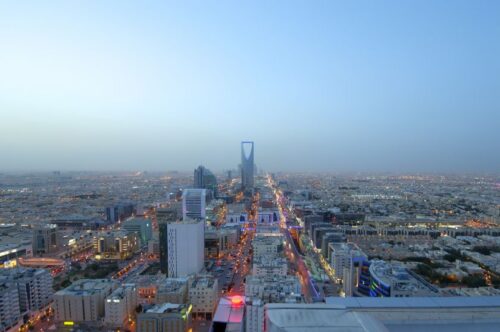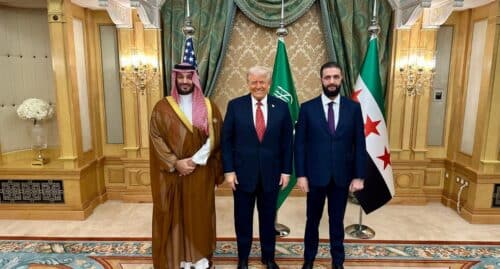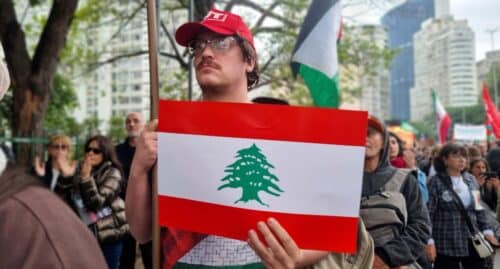When addressing issues pertaining to the Judea and Samaria region in Israel (otherwise known as “the West Bank”) – the security and political aspects pertaining to the area top the priority list. However, in effect, the rules of the game in the region are ultimately dictated by legal constrictions – and Judea and Samaria have a rather labyrinthine legal reality. Lieutenant Colonel (res.) Advocate Maurice Hirsch is one person with extensive knowledge on the area, who can walk us a bit through this entanglement – or at least help us gain a somewhat better understanding of the special circumstances the prevail in this volatile area.
Apartheid Regime? “Simply not True”
Lt. Col. (res.) Adv. Maurice Hirsch, a South African who lived and studied in the UK and immigrated to Israel, has served in the IDF Military Advocacy for 19 years. In his last role in the army, Hirsch served as Head of the Military Prosecution in Judea and Samaria. He is an expert on international, martial and criminal law and a member of IDSF-HaBithonistim’s research department. Adv. Hirsch is also the head of the legal department at Palestinian Media Watch (PMW), which researches the Palestinian Authority and Palestinian society through media analysis.
We sat down with Adv. Hirsch and asked him to shed some light on the legal reality of Judea and Samaria and on the relationship between the Palestinian media and Israeli law, and to share with us the story of how FIFA, the international soccer federation, got involved in the Israeli-Palestinian conflict.
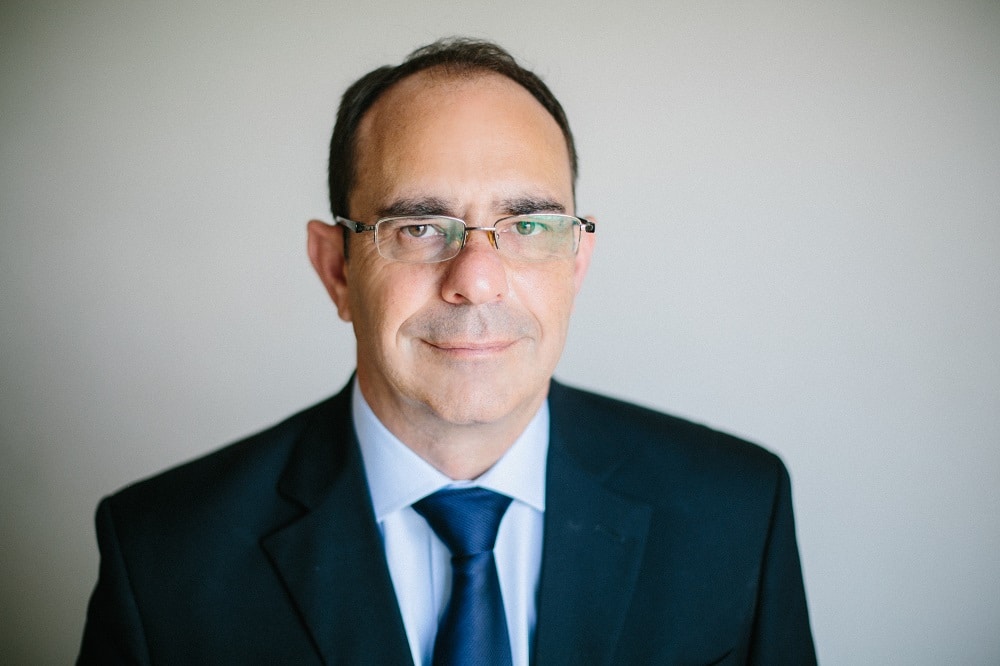
Let’s start off with an explosive topic: what should be the response to those who claim that Israel is an apartheid regime?
“This is a blatant lie. Apartheid is an oppressive regime that was based on racial segregation of whites and blacks in South Africa during the last century. There’s no such thing in Israel. It’s true that there is a conflict between two peoples, but it is devoid of any characteristics of apartheid. Proof of that are the numerous members of the Arab sector in Israel who carry positions of the highest rank – be they army generals, police superintendents, Israel’s Prison Service commissioners, Supreme Court justices and heads of hospital departments, to mention but a few.”
That’s all very well, but allegedly, Israel uses two legal systems based on ethnic-national belonging, and in effect, there are two separate legal systems in Judea and Samaria – one system for Israelis and a Jordanian system for Palestinians, right?
“In order to address this misconception, we need to go back in time a bit: following the Six Day War in 67, Israel’s government came to the conclusion that it will not enforce Israeli law on the Judea and Samaria region, despite it having full legal justification. This decision had implications in terms of international law. For example, international law stipulates that when a state holds territories under military control, the judicial system predating the occupation continues to have jurisdiction in that territory. “
Meaning – in this case – Jordanian law?
“In 67, when we entered Judea and Samaria, we found three legislative tiers in place: legacy laws from the Ottoman Empire, British Mandatory legislation and Jordanian law. These were the circumstances into which the IDF stepped, adding a tier of its own. As international law dictates. All these legislative tiers apply to Judea and Samaria, regardless of religion, color, age or race. Fast forward to the Oslo Accords: the Military Advocacy comes and states that it is delegating powers over civil matters to the Palestinian Authority. So on top of all the existing judicial tiers I’ve mentioned – now A and B Areas are in addition subjected to the Palestinian legal system, while Israelis living in Judea and Samaria have an additional tier of Israeli law.”
So, there is one law for Israelis and another for Palestinians, right?
“In its formative years, the State of Israel had adopted a judicial approach in regard to its citizens that stipulates that Israeli law will apply to Israelis wherever they may be in the world. This bred a claim that Israel applies one set of laws to Jews and another – to Palestinians. However, this is a gross misconception. The term ‘Israelis’ encompasses Israeli Arabs as well. So it follows that if an Israeli Arab breaks the law in Judea and Samaria, that person will stand trial before a civil court and not a martial court. “
Has this happened in the past?
“Absolutely. Case in point: an Israeli Arab, who was employed by the Palestinian Authority Police force, held an AK-47 rifle as part of his job. Insofar as Israeli law goes – this is considered illegal possession of weapons. Therefor, that person was bought to trial in the Israeli legal system.”
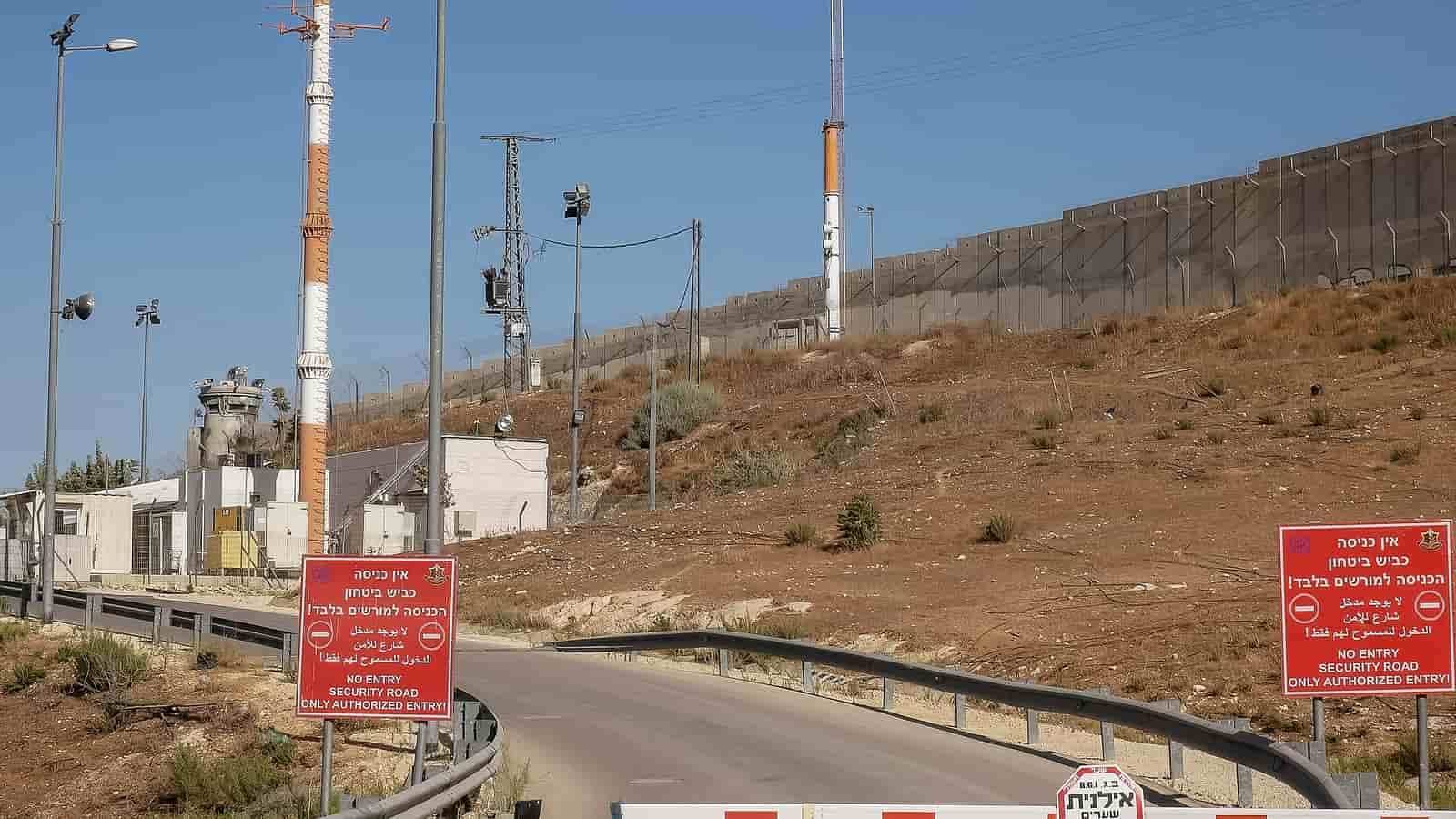
”You Can’t Annex What is Already Yours”
“People who routinely travel on the roads of Judea and Samaria know they have to be extra vigilant; some drivers on these roads must feel that the traffic signs are there for cosmetic reasons and that a solid line that prohibits overtaking another car – is a mere recommendation. The feeling is that of a modern Wild West. Recently, this issue took to the media headlines, even earning the nickname ‘the Arab highway terrorism’, due the fact that the portion of Arab drivers involved in accidents there is significantly higher than their portion of the population.”
How can we deal with criminal offenses committed by Palestinian civilians against Israeli civilians?
“The Israeli law authorities have full jurisdiction to prosecute Israelis who’ve committed offenses in C Areas, which are under Israeli civil and security control and constitute 60% of Judea and Samaria. The martial court has the jurisdiction to try Palestinians who’ve committed offenses in this area.”
But reality paints a different picture: just one example are the Palestinian drivers who do as they please on Judea and Samaria roads and get away with it
“Look, the truth of the matter is that the State of Israel doesn’t wish to deal with enforcing its sovereignty on C Areas – be it illegal construction, traffic violations, rock throwing and so forth. Generations of Israeli administrations have given up on that area. The highway terrorism is the result of decades of neglect and the petty argument between the Ministry of National Security and the Defense Ministry over which of them should be in charge of this territory, with each trying to roll the responsibility over to the other. The result is the neglect of the Israeli citizens of Area C.”
What in your opinion could be the solution for the legal predicament created in Judea and Samaria?
“I believe that it’s time to end the story of martial law in Area C and enact Israeli law on the entire area. At the same time, the enclaves of A and B Areas should be left to local Palestinian governance, without legislative jurisdiction and with no central government such as the PA.”
In other words – annexation?
“It’s not annexation. ‘annexation’ isn’t the right word. Rather, it’s the enforcement of Israeli law over a territory that belongs to us. Judea and Samaria were granted by the world’s nations to Israel and the Jewish people already in 1920, for the purpose of establishing a national home. You can’t annex what is already yours. In 67 we expelled the true occupier, Jordan, so the use of the word ‘annexation’ is inappropriate.”
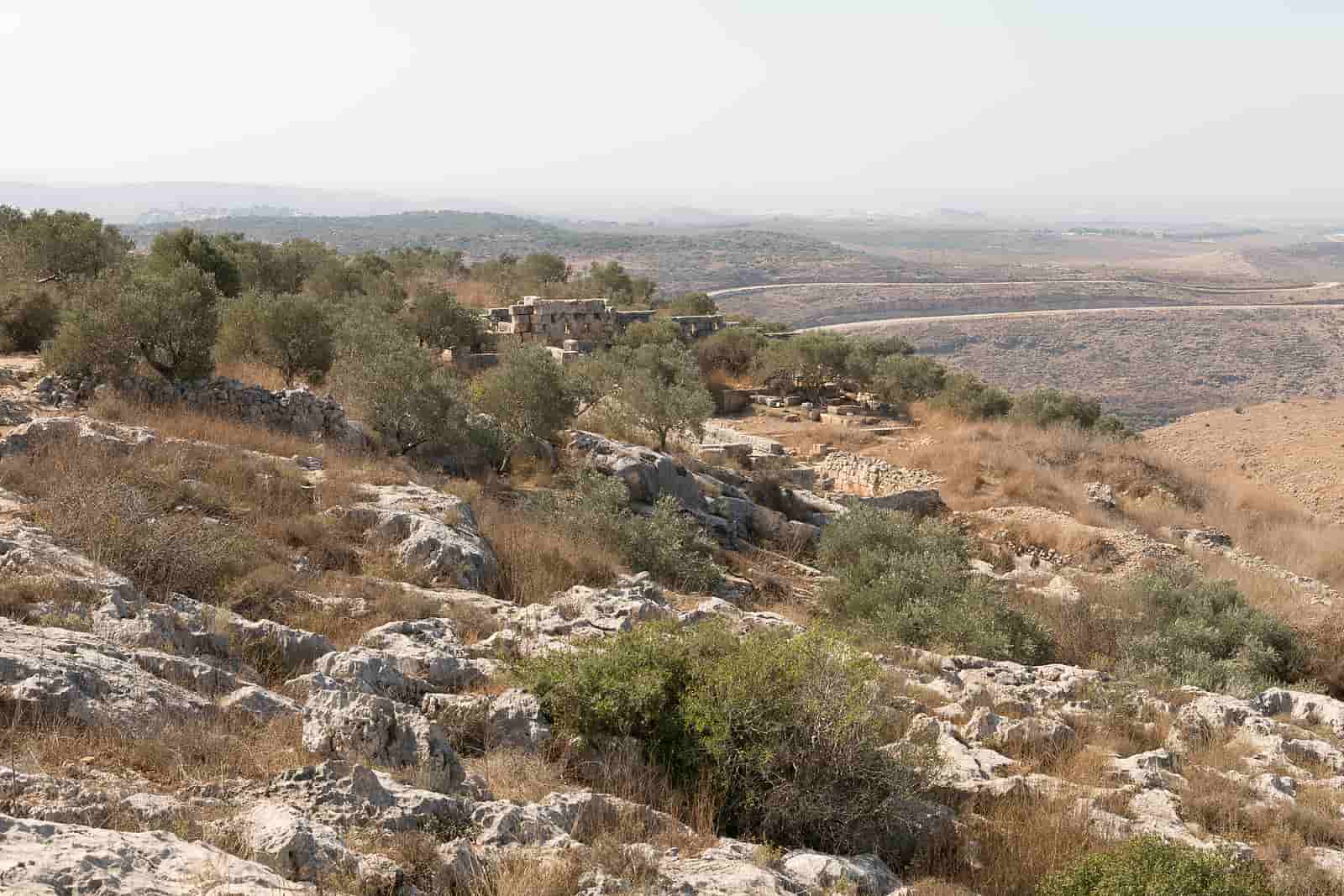
Backing Up the Soldiers: The ICC, the Military Advocacy and Rules of Engagement
In 2003, the White House military spokesman announced that during a strike against military targets, an American missile hit the Al Jazeera offices, killing a correspondent. The Americans summarily apologized for the unfortunate mistake but in the same breath stated that these mistakes are part and parcel of battle arenas. The international court acknowledged this and took no issue with the statement.
In 2021, during Operation Guardian of the Walls, the IDF bombed the al-Jalaa building in Gaza City – a communications building that was used by the Hamas terrorist organization as a facility to develop means to intercept Israel’s Iron Dome defense system. The IDF issued a clear warning to the occupants prior to the strike, and as a consequence – no civilians were killed. However, a list of organizations hurried to condemned the attack and called for an investigation of the event as a war crime by the Hague International Criminal Court.
Legally speaking, is there any truth to the claims of these organizations?
“Not only was it not a war crime, but in reality – there isn’t even cause to see it as an offense. That building was targeted as it was an undisputable military target. The IDF did whatever it could to reduce casualties and collateral damage, and by doing so, complied with the demands of war laws. And even if the terrorists come and claim that the place was a purely civilian target with absolutely no military affiliation – this is groundless. “
Commonly, the Israeli public boasts having an IDF that is “the most ethical military in the world” – is this true? Where do we stand in comparison to other armies regarding military morality?
“To answer this question, one has to compare the IDF to foreign militaries and their behavioral patterns. For example, rape during battle is very common in foreign armies, but is nonexistent in the IDF; looting during battle is extremely common in foreign armies but is virtually nonexistent in the IDF. Want to talk about hitting civilian targets? Look at the numbers of civilian casualties in conflicts involving foreign armies as compared with the number of Palestinian casualties in conflicts with the IDF – we have a huge advantage against all other armies precisely because of the caution we take with this issue.”
And yet, at times it feels like the Military Advocacy hasn’t got its soldiers’ backs
“The common narrative today regarding the Military Advocacy is phantasmagoric and untrue. The responsibility of the Military Advocacy is to be the army’s guardian of the law. In this capacity, it must try soldiers who’ve committed offenses. Such offenses can be in a wide rage of areas. Some are related to a soldier’s military conduct. For example, a soldier who enters Gaza as part of a military operation, fights like a lion and kills terrorists – is doing his job to the highest standard. But let’s say that same soldier notices a stack of dollars in one of the houses and decides to pocket the money – and unfortunately, these things happen, albeit rarely – this soldier must be brought to justice. Does this have anything to do with his operational performance? No. Should the court’s ruling on the matter be impacted by his performance? Also no.”
Frequently after operations or wars, the word “Hague” or “ICC” hovers over our heads. Is this a concrete threat?
“So far, those brought to trial before The Hague comprised mostly of African dictators and such. Never has an Israeli stood trial before the international court at Hague. The real question here is whether there is cause to fear the ICC in The Hague, and that’s an entirely different issue, since there is a certain concern that one day the ICC will begin to prosecute the State of Israel and soldiers and officers who’ve served in the IDF. It is not impossible that one day we’ll wake up to a news headline stating that an IDF veteran officer was apprehended in Europe for allegedly committing crimes during a military operation or war. So even though there are no evidential, legal or ethical grounds for such an arrest – such an eventuality should not be taken lightly.”
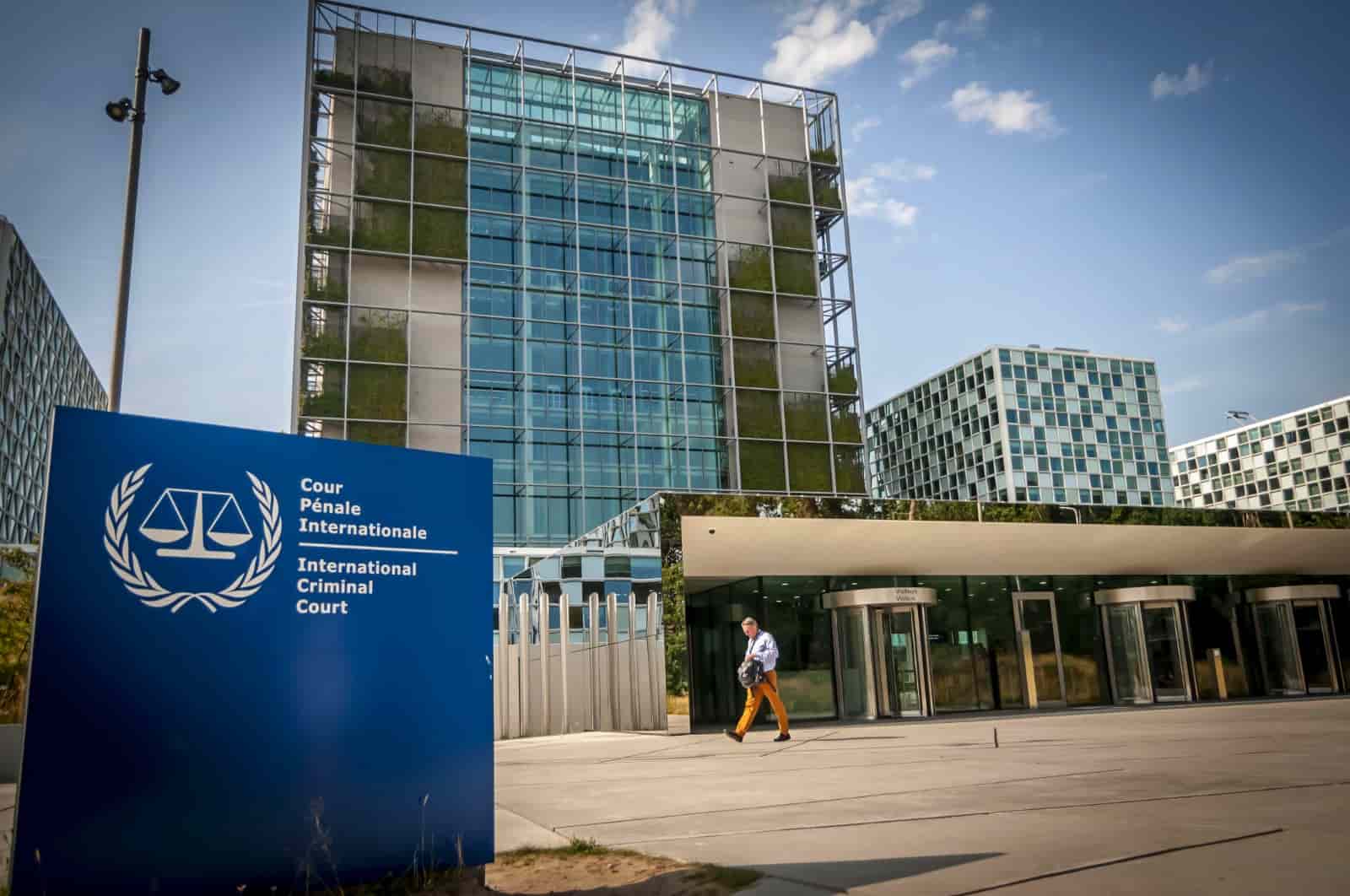
“The Palestinian Media is Similar in Nature to Soviet Russian Media Outlets”
You’re a researcher at Palestinian Media Watch. What does this institute do?
“The object of Palestinian Media Watch is to monitor the Palestinian Authority’s policy with respect to the peace agreements with Israel. The method chosen for this is to monitor Palestinian media. Why specifically the media? Because the media reports on policy, statements by the leadership and through the media you can learn a lot about the Palestinian Authority’s platform, and what the positions it chooses to present to the Palestinian public.”
Can the media teach us about the Palestinian government’s position?
“Of course. You must understand that the Palestinian media is similar in nature to Soviet Russia’s media outlets: everything is controlled by the PA. The government funds the central newspaper, television and radio. The employees of the PA’s various media bodies are appointed by Mahmoud Abbas. Every word printed or broadcasted is subject to the approval of the Palestinian Authority, which is why we can learn through the Palestinian media what the Palestinian Authority aims to convey to its people.”
What does law have to do with the Palestinian media?
“The media is just the platform: the information that we gather can be used in various ways to support Israel’s legal struggle. For example, the first project I worked on was with FIFA – the international soccer federation.”
What does soccer have to do with the Israeli-Palestinian conflict?
“In 2013 the Palestinian Authority launched a vicious attack against Israel, claiming that the Israeli Soccer Association is in violation of the FIFA rules in that it included in its member teams six clubs that are located in Judea and Samaria. FIFA was very attentive to the PA’s claim, which received tailwind from anti-Israel organizations. The attack against Israel mounted and FIFA decided to appoint a committee to examine why Israel is in violation of its rules. In 2017 it was decided that the committee will rule that Israel is violating FIFA rules and will recommend sanctions against the country.”
And were sanctions imposed against Israel?
“No, because at that point we stepped into the picture. I took all the materials of Palestinian Media Watch and my legal expertise, and authored an indictment against Jibril Rajoub – head of the Palestinian soccer association – in which I detailed his activities of incitement of terrorism and additional behaviors that blatantly violate FIFA rules. At the same time, I wrote a statement of defense for the Israeli Soccer Association. It’s important to emphasize that all this we did independently and unsolicited.”
Did FIFA accept these claims?
“You bet. Following our documents, FIFA understood that the Palestinian Authority’s claims can’t hold water. Initially, FIFA only put off the submission of its committee’s recommendations, but later also rejected the claims of the Palestinians and decided to quash all Palestinian claims against Israel on the matter. In other words, within a half a year we tore down the four-year Palestinian campaign and protected the Israel Soccer Association from sanctions. Fun fact: we continued pressing claims against Jibril Rajoub to the point that FIFA fined and suspended him for an entire year.”
You are also a member of IDSF HaBithonistim and are a member of its research department. Why?
“IDSF-HaBithonistim’s struggle is multi-pronged, the most forceful of which is the security effort. But it is important and imperative to place these efforts on the proper legal grounds. Not everything a general wants can be upheld by international law. For this reason the combination of military operation with the legal aspect legitimizes our actions. The coupling of military and law is what I do in IDSF-HaBithonistim’s research department.”
“We’re Really Living the Prophets’ Prophecies”
It seems that we have so many challenges yet ahead. Still, are you optimistic about the future here in the country?
“I’m very optimistic. The State of Israel has done wonderful things here in 74 years. You cannot overlook the fact that we’ve established a charitable and generous society that champions labor and development; a geographically small country with outstanding and unbelievable achievements. We’re living the prophets’ prophecies. Jews are coming to the Temple Mount and the laughter of children is heard on the streets of Jerusalem. 2,500 years ago Jeremiah prophesized that the day will come when Jews shall plant vines in Samaria. This did not happen until our time, but today you can tour Samaria and see – not only are the vineyards verdant, they also sweep prizes in international wine contests. We’re really living the prophets’ prophecies and are fortunate to belong to the generation who see all this come to life. True, there are challenges – but the big picture is fantastic. What reason would I have not to be optimistic?”



